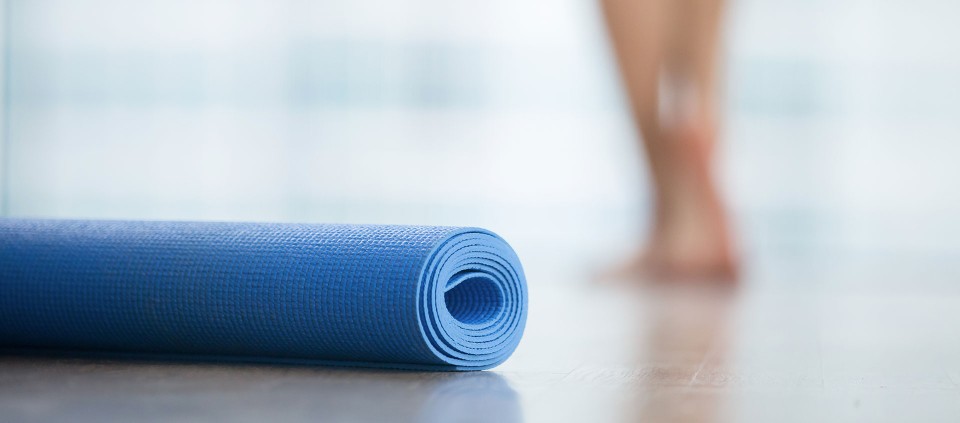Yoga Beyond the Mat: The Deeper Draw of Yoga Psychology

Most of us come to yoga seeking better health. But is that all? There are plenty of other modalities that offer these benefits, so why do people ultimately choose yoga over, say, Pilates or aerobics? It is because yoga promises something more than other practices. Most other modalities are merely physical. While physical fitness undoubtedly confers benefits to body and mind, yoga also makes a claim for mental, emotional, and spiritual well-being, taking it a giant step beyond other practices. Though many have tried to strip modern yoga of its spiritual elements, yoga still has the air of a spiritual function, and there is a part of us that recognizes how deeply necessary this is.
Yoga is much bigger than just a physical practice on the mat. Think about it. Where else do we go to meet like-minded people? How do we find a community of souls that are all working on self-development? Where else can we move and breathe together united by a shared intention? Where else do we look for spiritual solace in our darker times? While we may have once headed to a religious institution to find our community and pray together, or may have attended a Friday night swing session at our local dance hall to meet people, these gatherings are largely a thing of the past. For many, yoga replaces them. Where religious communities once prayed together in times of need, yoga communities now support members who have fallen ill, or face disaster. Yoga replaces posts once held by religious and community centers, and we look to it to support us more deeply on both community and individual levels.
As we develop our yoga communities and find a sense of togetherness in our weekly classes, we also turn to yoga to answer some of our deeper questions. Countless students have come to me for personal advice on anything ranging from where to buy eco-friendly clothing to whether or not to get a divorce. As a leader of yoga teacher trainings, I see people jump into the immersive experience not just to learn to lead a group in asana practice, but to transform their own lives. As teacher trainees delve into yoga philosophy and broaden their understanding of the practice, it takes a deeper hold on them and shifts their perspectives, often resulting in radical changes in their own lives. This is not an uncommon occurrence. Talk to anyone who has done a yoga teacher training, intensive, immersion, or retreat, and they will likely tell you that it was life changing.
But, how did it change their life? And, why did their life need changing? When we embark on a fuller, richer practice of yoga, the philosophy and mythology around it shifts our perceptions of who we are and how we live. It reveals to us what we have repressed, ignored, pushed aside, and put off in such a way that we can no longer overlook these things. It gives us a mirror of perfect self-reflection that shows us who we are right now, and also shines light on our potential and who we might become. Yoga practice reveals aspects of our lives where we are not yet free, and in the age-old human search for freedom, that is an invaluable prospect. Yoga, when done holistically, gives us a structure and a framework for personal development and change. It provides the container for self-examination and—with a few smart additions—also gives us the tools to take what we see and transform it into the life we have always wanted. Yoga leads us to bliss.
We all seek bliss. Whether we have known it or not, we have historically found answers on how to find it through mythology and religion. Now though, with religion falling out of favor and mythology feeling unbelievable, we are unsure of how to proceed on our quest for contentment. This is why we need a complete yoga practice to provide the structure, framework and container for personal transformation. Creating a new personal mythology based on the great tradition of yoga is the answer to our deepest psychological and spiritual needs and it is firmly within our grasp. Developing a personal mythology—something that sets our own soul free—is a necessity for our time. We must have a place to go to connect to our community and a resource for connecting to our purpose and ourselves. As a personal mythology, our yoga practice does this.
At first, wearing the proverbial yoga hat may feel awkward, like wearing a new pair of shoes that require a little breaking in. But once you start walking around in them more regularly, they become an extension of your feet. Your new yoga practice is an extension of your soul. This is an exciting process, and awakening to the call of yoga is your first step on the journey within.
Find out about yoga psychology programs with Alanna Kaivalya at Kripalu.
Excerpted with permission from Yoga Beyond the Mat, by Alanna Kaivalya, Llewellyn Worldwide, 2016.
Alanna Kaivalya, PhD, often referred to as the “Yoga Doctor,” helps yoga teachers embody their knowledge, up-level their skills, and create more impact in the world.
Full Bio and Programs